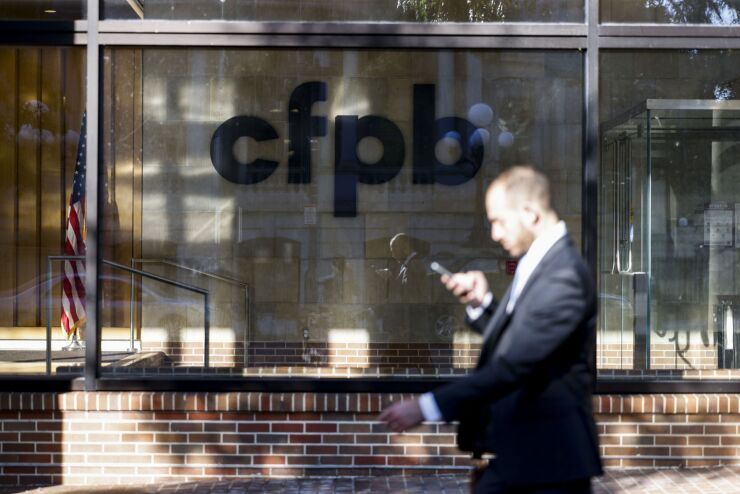The Consumer Financial Protection Bureau has agreed to temporarily halt a rule that would ban medical bills from credit reports, giving the banking industry an immediate win under the new leadership of Treasury Secretary Scott Bessent.
Processing Content
On Thursday, the CFPB agreed to put the medical debt rule on hold for 90 days and hold off on litigation for three months. The bureau did not oppose a preliminary injunction granted by the U.S. District Court for the Eastern District of Texas that was filed by two trade groups that sued the CFPB in January. The medical debt rule is on hold until June 15.
The Trump administration was not expected to defend the rule in court. Within an hour of being named acting director of the CFPB on Monday, Bessent directed the agency's staff to halt all rules and enforcement actions. Most of the CFPB's work has ground to a halt with the exception of supervision and consumer response. Top CFPB officials talk daily with Bessent's staff at Treasury, getting direction on upcoming court cases and motions, according to people familiar with the matter.
The motion on medical debt is just one of many legal decisions that the Treasury is giving guidance on what CFPB staff can — and cannot — work on. Bessent is not expected to defend most of the bureau's rules in court, and the CFPB will have to take a number of actions to unwind rules issued by and finalized under former CFPB Director Rohit Chopra.
The CFPB first proposed taking medical debt off credit reports in 2023 and proposed the medical debt rule in June. The bureau said the rule would remove $49 billion in medical bills from credit reports, impacting 15 million consumers. But, importantly, consumers would still be responsible for paying their medical bills despite the removal from credit reports.
In January, the CFPB was sued by the Consumer Data Industry Association and Cornerstone Credit Union League, which claimed the bureau does not have the authority to dictate what can or cannot be included on consumer credit reports. The two trade groups argue that Congress in 2003 amended the FCRA through the Fair and Accurate Credit Transactions Act, which specifically authorized medical debt to be coded to protect the privacy of consumers. The FACT Act allows creditors to consider coded medical debt information in making credit decisions.
Separately, another trade group representing debt collectors also sued the bureau. Both lawsuits claim the CFPB's medical debt rule violates the Administrative Procedure Act and the Fair Credit Reporting Act. The debt collectors' further allege that the CFPB violated their First Amendment rights.
Banks and lenders oppose removing medical debt or medical bills from credit reports claiming it would restrict lending, increase costs and result in more denials of credit to low- and moderate-income consumers. Some experts claim the rule would make credit reports less accurate, increase risks for lenders and result in lost income for doctors' practices.
The three credit bureaus stopped reporting medical debt collections of less than $500 and currently delay for one year the reporting of medical debt collections to account for slower insurance repayment practices. The rule covers medical debt of more than $500.
The banking industry has high hopes that a Trump CFPB will rescind several rules that were finalized in the past six months under Chopra including the CFPB's $5 overdraft fee rule, $8 credit card late fee rule and 1033 open banking rule. Multiple banking trade groups want all three rules rescinded, and the effective dates of each extended, with new watered-down rules reproposed or even dropped.







